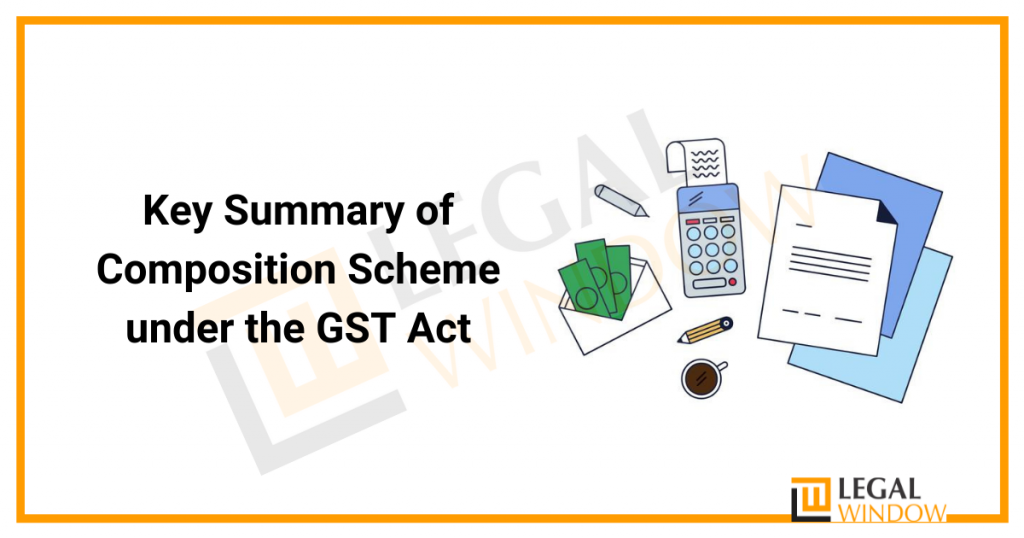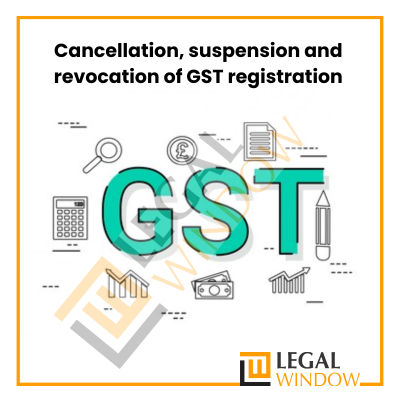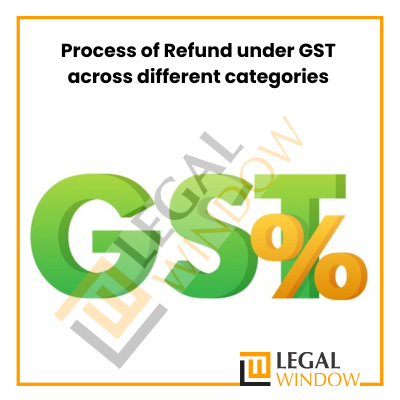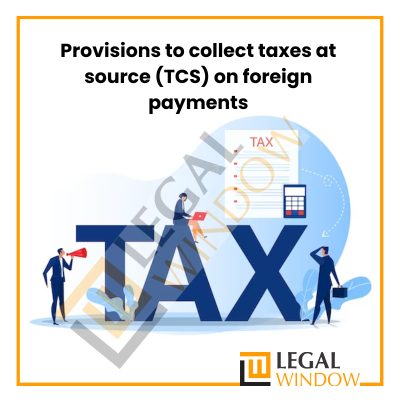
The Goods and Services Tax is an indirect form of taxation that has dramatically simplified Indian taxation laws. GSTR4 serves as the GST return for composition dealers, which is a scheme offered under the GST regime for certain types of taxpayers. The GST return for the composition scheme must be filed annually now, whereas, until 2018, it was filed every quar
ter. This article will take a look at the GST annual return for composition dealers, the composition scheme, and why they are important.
Background of GST Composition Scheme
- GST council has introduced a composition scheme under GST to reduce the costs for small taxpayers, along with simplifying the compliance process. Small businesses got relief and feel free from the burden of compliance provisions after the emergence of composition scheme in the world of taxes. There is a negligible requirement of maintaining records since the GST composition scheme assures greater compliance.
- When GST came into the picture, big businesses were happy, but small businesses were not comfortable with the GST compliance procedures. Thus, in order to provide a sense of comfort to small businesses, the GST composition scheme got introduced in which the individuals need to pay their taxes at minimum rates depending on their actual turnover.
- All those taxpayers whose turnover is below the mark of Rs 1.5 crore can opt for this composition scheme under GST. The limit is Rs 75 lakh for Himachal Pradesh as well as the North Eastern States of India. By opting for this scheme, they will be able to get rid of tiresome formalities concerning GST and would pay goods and service tax at a fixed rate of turnover. In section 10 of the CGST Act, 2017, CBIC has increased the threshold limit for availing the GST composition scheme to Rs 1.5 crore from the previous limit Rs 1 crore.
Concept of GST Composition Scheme
The GST Composition Scheme acts as an alternative way of paying taxes for small taxpayers. This method aims to simplify the process and reduce the compliance cost for these taxpayers. Further, section 10 governs the Composition Scheme under GST Act.
Furthermore, if we compare the composition scheme and normal GST Filing, the scheme offers two benefits. First, the lower tax liability and second the reduced paperwork.
Moreover, under this scheme, the taxpayer is liable to pay tax at a fixed rate, i.e., 1% to 6% of the annual turnover.
Eligibility Criteria
For any taxpayer to opt for registration under this scheme, he or she must satisfy these eligibility criteria:
- Must be registered under the Act;
- Aggregate turnover must be less than 1.5 Crore rupees;
NOTE: If more than one taxable person is registered on the same PAN number, then the compensation scheme can be availed by only one if all of such taxable persons will avail the same.
Who is not eligible?
Other than the taxpayers not covered under the above-mentioned criteria, sub-section (2) of section 10[1] of the Act specifies a list of registered taxpayers not eligible to opt for it. They are:
- Suppliers of non-taxable goods
- One engaged in making any inter-state outward supplies of goods
- Supplier of services, other than restaurants (except which serve liquor)
- Supplier of goods through an e-commerce operator who collects tax at a source under Section 51
- Manufacturer of ice cream, pan masala or tobacco;
- Manufacturers of such goods as notified by the government on the recommendations of the council.
Other than these specified categories, another type of taxpayer who cannot opt for the composition scheme is occasional traders i.e. ones who are not involved in regular business cannot avail this scheme’s benefits. Such occasional traders are a Casual Taxable person and Non-Resident Taxable Person.
Benefits of Composition Scheme
In India, the benefits of the Composition Scheme under GST Act are as follows:
- Limited Compliances for Small Taxpayers;
- Timely Recovery of Taxes;
- Limited Tax Liability;
- High Liquidity for Taxpayers;
- Quick filing of Returns;
- Easy maintenance and generation of records;
- Simplified invoices and other documents.
Tax rate applicable to a Composition Taxable person
At the time of registering for GST composition, a fixed composition tax rate is applicable to your business turnover. The applicable GST rates under composition scheme –
| Business Type | CGST | SGST | Total |
| Manufacturers and Traders (Goods) | 0.5% | 0.5% | 1% |
| Restaurants not serving alcohol | 2.5% | 2.5% | 5% |
| Service Providers | 3% | 3% | 6% |
Different Forms for the GST Composition Scheme
The different forms for the GST Composition Scheme can be summarised as:
| Form No | Particulars | Due Date |
| GST CMP-01 | To opt into Composition Scheme by Provisional GST Registration Holder. | Within 30 days from the date of appointment |
| GST CMP-02 | To opt into GST Composition Scheme by the unregistered persons. | Before the Commencement of Financial Year. |
| GST CMP-03 | Information regarding the stock/ inward supply from the unregistered person/ business. | Within 90 days from the date of exercising the option. |
| GST CMP-04 | Application for the withdrawal from the GST Composition Scheme. | Within seven days from the date of the happening of the event |
| GST CMP-05 | Issuance of Show Cause Notice by the Proper Officer | On any contravention |
| GST CMP-06 | Reply to the Show Cause notice issued by the proper officer | Within 15 days from the receipt of notice |
| GST CMP-07 | Order for the Acceptance or Rejection of the Reply filed to the Proper Officer. | Within 30 days from the filing of the notice |
| GST REG-01 | Registration under the GST Composition Scheme | Before the appointed date |
| GST ITC-01 | Details regarding the semi-finished, finished and stocks | Within 30 days of the withdrawal from the GST Composition Scheme |
| GST ITC-03 | Intimation about the Input Tax Credit | Within 60 days from the beginning of the Financial Year. |
Composition Scheme under GST: Filing of Returns
- Form CMP-08- To file a quarterly return after the quarter-end
- Form GSTR- 4 – Annual filing of GST return
GSTR-4 is a GST Return that has to be filed by a composition dealer. Unlike a normal taxpayer who needs to furnish 3 monthly returns, a dealer opting for the composition scheme is required to furnish only 1 return which is GSTR 4 once in a year by 30th of April, following a financial year.
Composition Scheme Billing
- A dealer cannot issue a goods and service tax invoice as per the rules of the composition scheme as the tax liability is on the taxpayer.
- A dealer should issue a bill of supply as per the composition scheme rules under GST. It is mandatory for every bill to mention “composition taxable person, ineligible to receive tax on supplies.”
Intimation for opting of Composition Scheme under GST
- An unregistered dealer who wishes to opt for composition scheme is required to intimate in Part B of Form GST REG-01 to be filed electronically.
- On the other hand, a registered dealer, if he wishes to opt for composition scheme under GST, needs to file an intimation in form GST CMP-02 prior to the commencement of the financial year for which the option to pay tax under the aforesaid scheme is exercised. The validity of the scheme shall be as long as all the prescribed conditions under GST law are complied with.
- Where a dealer wishes to withdraw from the scheme or ceases to satisfy any of the conditions, he shall be required to give an intimation of the same in form GST CMP-04 within 7 days from the day on which the threshold limit has been crossed, and shall issue a tax invoice for every taxable supply made thereafter.
- However, such person will be allowed to avail the input tax credit in respect of the stock of inputs and inputs contained in semi-finished or finished goods held in stock by him and on capital goods held by him on the date of withdrawal and furnish a statement within 30 days of withdrawal comprising the details of such stock held in FORM GST ITC-01 on the common portal.
What will happen if I opt out of the composition scheme mid-year?
When a dealer opts out of the composition scheme all the normal rules are applicable from the day of opting out. For example, a composition dealer opts out of the composition scheme on 15th October 2020. This means that the dealer will have to file two CMP-08 for the quarters of July – September, and October (15 days). The dealer will also have to file GSTR-1 and GSTR-3B for the period of October 2020 (sales from 15th October until end of the month).
Latest Update on Composition Scheme
As per the outcome of the 43rd GST Council meeting and CBIC notification,
- Interest relief has been provided for filing of CMP-08 for Jan-March 2021 quarter as per which, for any delay, interest is not charged until 3rd May, whereas 9% of reduced interest will be charged if filing is done thereafter until 17th June, and 18% later on.
- The due date to file GSTR-4 for FY 2020-21 is extended up to 31st July 2021.
- The maximum late fee for GSTR-4 that can be charged will be restricted to Rs.500 per return for nil filing and Rs. 2000 for other than nil filing.
Conclusion
The main reason behind the implementation of the Composition Scheme under GST Act was to provide an alternative or optional way to the small taxpayers. Further, this scheme aims to reduce the tax burden and compliance cost on these taxpayers.
Moreover, this scheme has simplified the lives of small taxpayers, as now they are not required to maintain lots of records. Therefore, it will be correct to mention that the composition scheme under GST Act has turned out very beneficial for small taxpayers.
However, GST Registration and GST Return Filing is an extensive process that is efficiently and smoothly handled by the experts at Legal Window. Take the assistance of our experts who are coherent in dealing with GST registration.
CA Pulkit Goyal, is a fellow member of the Institute of Chartered Accountants of India (ICAI) having 10 years of experience in the profession of Chartered Accountancy and thorough understanding of the corporate as well as non-corporate entities taxation system. His core area of practice is foreign company taxation which has given him an edge in analytical thinking & executing assignments with a unique perspective. He has worked as a consultant with professionally managed corporates. He has experience of writing in different areas and keep at pace with the latest changes and analyze the different implications of various provisions of the act.
Categories
- Agreement Drafting (23)
- Annual Compliance (11)
- Change in Business (36)
- Company Law (147)
- Compliance (88)
- Digital Banking (3)
- Drug License (3)
- FEMA (17)
- Finance Company (42)
- Foreign Taxation (6)
- FSSAI License/Registration (14)
- GST (116)
- Hallmark Registration (1)
- Income Tax (199)
- Latest News (34)
- Miscellaneous (163)
- NBFC Registration (8)
- NGO (14)
- SEBI Registration (6)
- Section 8 Company (7)
- Start and manage a business (20)
- Startup/ Registration (126)
- Trademark Registration/IPR (40)
Recent Posts
- Managing Director & Whole Time Director in a Private Limited Company April 17, 2024
- Guidelines of GST on Hotel, Restaurant & Outdoor Catering Services April 17, 2024
- Copyright Law and Artificial Intelligence April 16, 2024
About us
LegalWindow.in is a professional technology driven platform of multidisciplined experts like CA/CS/Lawyers spanning with an aim to provide concrete solution to individuals, start-ups and other business organisation by maximising their growth at an affordable cost.








